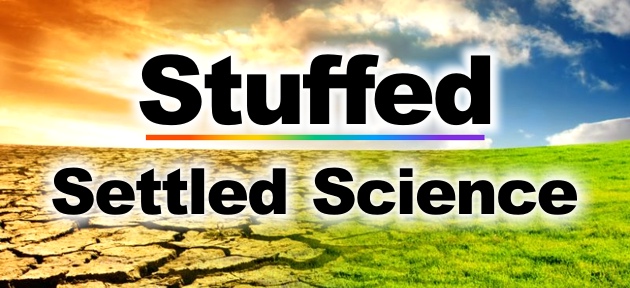The screeching ninnies of climate alarmism are forever shrieking about “the science”. Which is odd, because their millenarian rantings have sweet f.a. to do with the science of climate change. So what is the (actual) science?
Physicist and former Obama science advisor Steve Koonin wrote a whole book, Unsettled, about it. Climate scientist Judith Curry was recently challenged to present a five-minute summary.
Briefly, both Koonin and Curry show that nearly everything we are told about a “climate crisis” is either false, incredibly unlikely or deeply uncertain. The only real certainty is that we are spending trillions of dollars on policies which will almost certainly achieve nothing except to make humans impoverished, without making a jot of difference to the climate.
In a nutshell, we’ve vastly oversimplified both the problem and its solutions. The complexity, uncertainty, and ambiguity of the existing knowledge about climate change is being kept away from the policy and public debate. The solutions that have been proposed are technologically and politically infeasible on a global scale.
The problems start at the beginning of the climate debate: how much increased atmospheric carbon dioxide will influence the climate.
The sensitivity of the climate to a doubling of carbon dioxide has a factor of three uncertainty. Climate model predictions of alarming impacts for the 21st century are driven by an emissions scenario, RCP8.5, that is highly implausible. Climate model predictions neglect scenarios of natural climate variability, which dominate regional climate variability on interannual to multidecadal time scales. And finally, emissions reductions will do little to improve the climate of the 21st century; if you believe the climate models, most of the impacts of emissions reductions will be felt in the 22nd century and beyond.
If you believe the climate models. Climate models have so far spectacularly failed to measure up to reality. Modeller Nakamura Mototaka bluntly states that they are “useless junk” when it comes to modelling the real world. Koonin, like Nakamura, says that, while models are useful for research, they should not be the basis for public policy.
Then there is the category error of conflating science and policy. Science does not and cannot dictate policy.
Whether or not warming is ‘dangerous‘ is an issue of values, about which science has nothing to say. According to the IPCC, there is not yet evidence of changes in the global frequency or intensity of hurricanes, droughts, floods or wildfires. In the U.S., the states with by far the largest population growth are Florida and Texas, which are warm, southern states. Property along the coast is skyrocketing in value. Personal preference and market value do not yet regard global warming as ‘dangerous.’
The narrative of “dangerous warming” has created a monomania: eliminate fossil fuels. This fixation is in fact distracting us from deeper investigation of the climate.
The end result is narrowing of the viewpoints and policy options that we are willing to consider in dealing with complex issues such as public health, water resources, weather disasters and national security.
Does all this mean we should do nothing about climate change? No. We should work to minimize our impact on the planet, which isn’t simple for a planet with 7 billion inhabitants. We should work to minimize air and water pollution. From time immemorial, humans have adapted to climate change. Whether or not we manage to drastically curtail our carbon dioxide emissions in the coming decades, we need to reduce our vulnerability to extreme weather and climate events.
With regards to energy. All other things being equal, everyone would prefer clean over dirty energy. However, all other things are not equal. We need secure, reliable, and economic energy systems for all countries in the world.
The energy policies of the climate alarmists would condemn the developing world to continuing poverty – and send much of the developed world to join them. Anyone who tries to tell you that abundant renewable energy is at our fingertips is simply lying or uninformed. The maths of energy consumption and production is brutally clear.
What is not clear is the climate future. No matter what the IPCC, Extinction Rebellion, or the Greens try to tell you. Anyone who claims that they can predict the climate to a tenth of a degree, 100 years in the future, is having you on.
How the climate of the 21st century will play out is a topic of deep uncertainty. Once natural climate variability is accounted for, it may turn out to be relatively benign. Or we may be faced with unanticipated surprises. We need to increase our resiliency to whatever the future climate presents us with. We are shooting ourselves in the foot if we sacrifice economic prosperity and overall societal resilience on the altar of urgently transitioning to 20th century renewable energy technologies.
Climate Etc.
Undoubtedly we will discover new and better energy technologies in the future. Equally undoubtedly the climate will continue to vary as it always has.
But the idea that the current period of climate change is unique and dangerous, and that it can be “fixed” by immediately dumping fossil fuels, is, bluntly put, a lie. One that bears no resemblance to “the science”.
Please share this article so that others can discover The BFD

